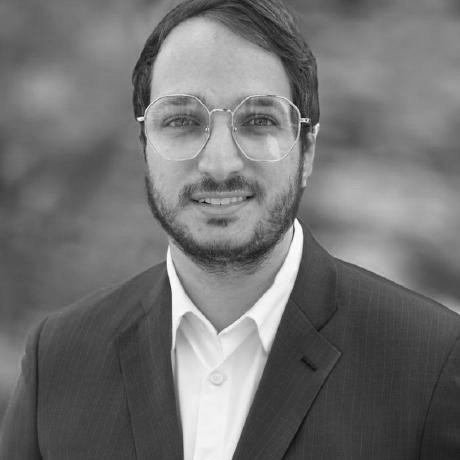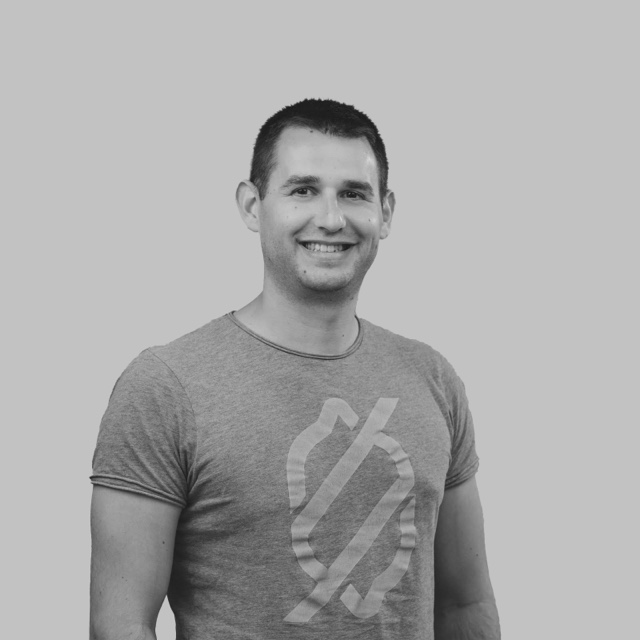Hiero
Open Source Distributed Ledger Technology
What is Hiero?
Hiero, a Linux Foundation Decentralized Trust project, is an open-source, vendor-neutral distributed ledger technology. Hiero is used to build the Hedera public ledger.
Hiero is fair
Everybody should have equal access to all public forums. No one should have the ability to re-prioritize your transactions, or drop them, or front-run, or sandwich trade, or otherwise disadvantage you. The hashgraph algorithm is leaderless. We all deserve a more fair world.
Hiero is fast
You shouldn't have to sacrifice performance for fairness or security. The world of interconnected businesses and networks continues to expand at an accelerating rate. Waiting minutes for transactions to finalize doesn't meet your requirements. The hashgraph algorithm isn't just fair, it is also fast.
Hiero is secure
The hashgraph algorithm is asynchronous Byzantine Fault Tolerant (ABFT). This is the gold standard in distributed network security. Your transactions are protected from bad actors with the highest security available.
Hiero is decentralized
No one entity should have complete control of your future. Spreading power and influence out among many participants, all with equal access, helps secure your access to the network and your data. You should be able to participate in the network, in its development, and in its use. This network belongs to the world. It belongs to the future.
Hiero is leaderless
A ledger with a leader-based consensus protocol is inherently unfair, and either slow or susceptible to denial of service attacks. We believe in a future where every node can participate on an equal basis with a completely leaderless consensus protocol, safe from denial-of- service, and safe from centralization.
Hiero is open
Hiero is a vibrant community of developers, visionaries, and innovators dedicated to creating a more fair, efficient, and secure world. As part of the Linux Foundation Decentralized Trust initiative, we are pioneering a new era of open governance and collaboration for the project.

Why is Hiero Open Source?
The main goal of Hiero is to create a diverse community of developers, dreamers, and builders working to make the world more fair, fast, and secure. To achieve that goal it is critical that everyone can access the source of Hiero and move the project forward. A decentralized network that is used by enterprises and critical infrastructure around the world must be vendor-neutral and fully auditable.
What parts of Hiero are Open Source?
Hiero is 100% open-source. While the transition of the project to Linux Foundation Decentralized Trust is still ongoing, a view into some additional contributions can be found in Hedera’s GitHub organization. As a first step, the technical steering committee (TSC) of Hiero will provide oversight to include projects that are needed to run an enterprise-ready decentralized network to a new Hiero GitHub organization. More information about the transition process can be found in the roadmap.
How to Contribute / Getting Started?
Since we are still working on the transition of the Hiero repositories from the Hedera GitHub organization into the Hiero GitHub organization, many opportunities for contribution can be initiated at the Hedera’s GitHub organization today.
While in this transition phase we already want to enable developers to join in developing Hiero and its related projects. As such, we’re always willing to help you get started and mentor you on your journey of learning the project and making useful contributions.
There is good work to do for everyone with whatever skillset you have - and it doesn’t have to be code. We also welcome help with documentation, design, project organization, and organizing meetups. For example, during one of our previous community contribution events, we curated a large list of beginner-friendly issues to encourage first-time contributions. Several of these issues focused on removing "Hedera" specific naming and usage from the codebase to help identify the project as vendor neutral.
If you have any questions or need help or additional mentoring, then you can reach out to the community and the technical steering committee (TSC) of Hiero in our GitHub discussions.
Connect with the Hiero Open Source community
Since we did not create Hiero from scratch, it already has a vibrant community from Hedera and other products and projects. With the creation of the Hiero project, we started GitHub discussions that can be used as a central place to contact the community and the technical steering committee (TSC) of Hiero.
For us, the community of the open-source project is a crucial part of its success. Based on that we will concentrate on the integration of the community. As defined in the roadmap, we will integrate the community into the development of Hiero from day 1. An essential part of that is to have community members be part of the TSC. Here the TSC is working on voting mechanisms that allow us to create a diverse community.
Next to the TSC, we want to invest in a diverse and inclusive community. It is important to us that everyone, regardless of knowledge and background, can become an active contributor to Hiero. To enable that, we plan to hire at least one community manager in the near future and provide open documentation and teaching resources.
Join our Hiero Community Calls
Join our open TSC, Community and Project meetings. We welcome your opinion and invite you to collaborate with the team!
Register to any of our current meeting series HERE
View all meeting schedules and access recordings via our LFX Calendar.
TSC
The Technical Steering Committee (TSC) meeting for project governance, roadmap planning, and key technical decisions.
Schedule: Fortnightly
Community Call
Open community meeting for general discussions, updates, and Q&A sessions with the Hiero community and TSC members.
Schedule: Monthly
Python SDK
Focused discussions on the Hiero Python SDK development, including new features, issues, and contributions.
Schedule: Monthly
Docs
Documentation working group meetings to improve and maintain Hiero project documentation.
Schedule: Monthly
Solo
Discussions and updates about Solo, an opinionated CLI tool to deploy and manage standalone test networks.
Schedule: Fortnightly
Solo Action
Working sessions focused on Solo Action project development, issues, and contributions.
Schedule: Fortnightly
SDK
General SDK working group for cross-SDK discussions, standards, and coordination across all Hiero SDK implementations.
Schedule: Monthly
Hiero Website
Planning and development meetings for the Hiero website, content strategy, and user experience improvements.
Schedule: Monthly
Hiero Marketing
Marketing and community outreach discussions, including events, communications, and ecosystem growth strategies.
Schedule: Monthly
Monthly Maintainers
Regular meeting for maintainers across all Hiero projects to coordinate, share updates, and discuss best practices.
Schedule: Monthly
Hiero/Hedera Identity
Working group focused on identity-related projects, DID SDK development, and identity standards implementation.
Schedule: Monthly
Hiero Mirror Node
Development and maintenance discussions for the Hiero Mirror Node, which archives data from consensus nodes and serves it via an API.
Schedule: Monthly
The Technical Steering Committee of Hiero
Hiero welcomes a diverse and inclusive community of contributors and leaders who help shape the future of our project. Guided by this belief, we have established our Technical Steering Committee (TSC), composed of experienced and diverse members from our community who work together to achieve the project's goals and to drive the project's decisions in the right direction. The duties, goals, and rights of the TSC are defined in the technical charter of the Hiero project.
Our Roadmap in the Linux Foundation Decentralized Trust
With the creation of the project in the Linux Foundation Decentralized Trust (LFDT) and the establishment of the initial technical steering committee (TSC) the cornerstones of Hiero have been laid. As a next essential step the TSC needs to provide a roadmap that covers the transition of the first repositories and projects to the Hiero GitHub organization and the inclusion and enabling of the community. The members of the TSC have committed themselves to work on the creation of this roadmap with the highest priority. The TSC hopes and encourages input and feedback by the complete ecosystem from core developers to users. To do so we enabled GitHub discussions as a first open way for communication. We hope that as many community members as possible contribute to the discussions regarding the initial roadmap and help us to create a real community driven project.
While an official roadmap does not exist today, the TSC has already defined several points they believe are essential for Hiero's success. The following provide insight into those areas.
Transparent voting mechanisms for the community
Together with the Linux Foundation, the Hiero TSC seeks to establish voting mechanisms that can be used in electing new committee members. Such transparency is instrumental in developing trust by integrating the community in all aspects of the project's governance and operations.
Transition of SDKs
The next phase of code contributions involve those that allow developed applications to take advantage of the myriad of a network’s services. Here the SDK clients are essential parts and should be migrated to Hiero directly after or parallel with the network repositories.
Transition of network repositories
Hedera has existed since 2017, which has allowed its developer ecosystem to grow as represented by the variety of projects within its repository. With the number of projects involved, the initial priorities are to transition the repositories needed to run a fully functioning base network (including Consensus Node, Mirror Node, JSON-RPC-Relay, and others) as soon as possible.
Renaming and rebranding
Repositories in the Hedera GitHub organization use “Hedera” or “Hashgraph” as names of the project reflecting the initial motivations for its use, reflected in the repository and project names but also in the sources. With the transition of sources to Hiero we plan to refactor all those projects and use Hiero as core element in naming conventions.
Enabling better communication with the community
A critical focus will be enhancing communication channels with the community to ensure transparency and inclusivity. In addition to GitHub Discussions, we are exploring the establishment of additional forums, such as Discord channels, to foster real-time interaction. Regular community calls and office hours will be implemented to keep the project on track and keep everyone updated on key milestones and developments.
Better support regarding contributions especially for newcomers
We recognize the importance of nurturing contributors at all levels, especially those who are new to the project. To this end, we will develop clear contributor guidelines, easy-to-follow documentation, and a mentorship program. These efforts aim to lower the barrier to entry, making it easier for newcomers to onboard and actively contribute to the growth of Hiero.

















